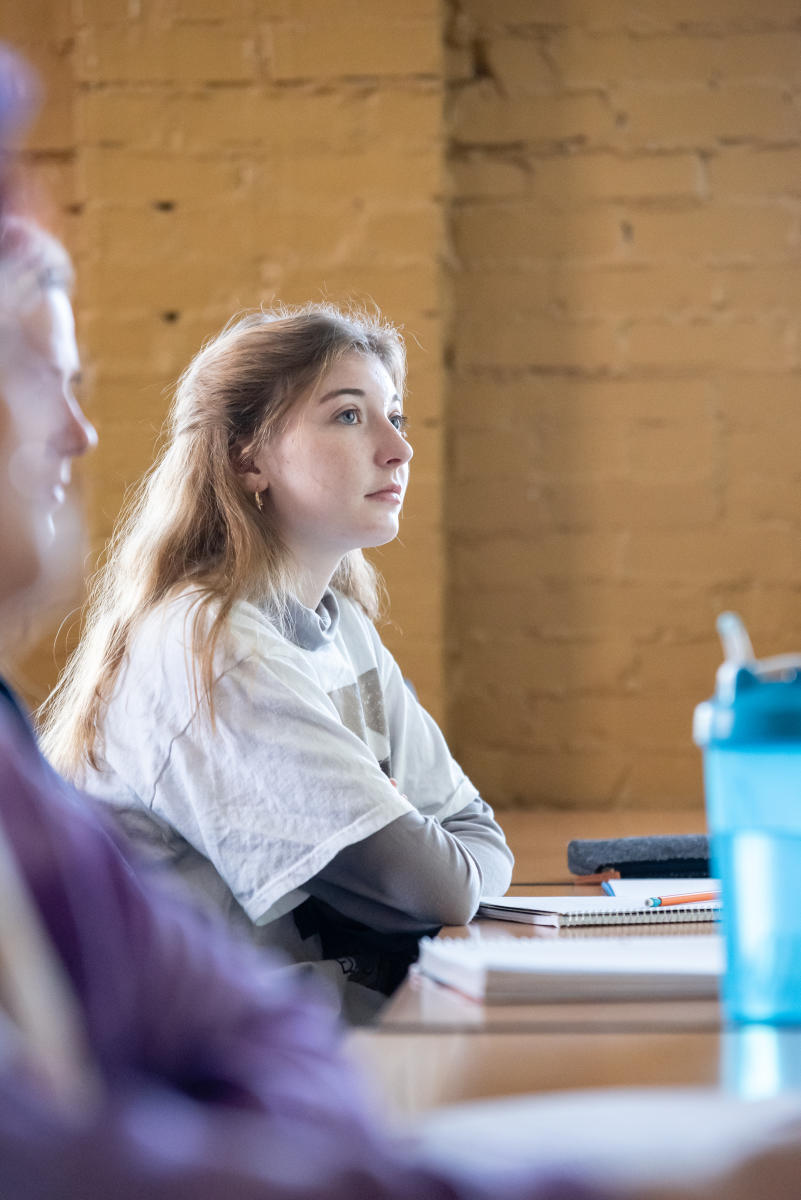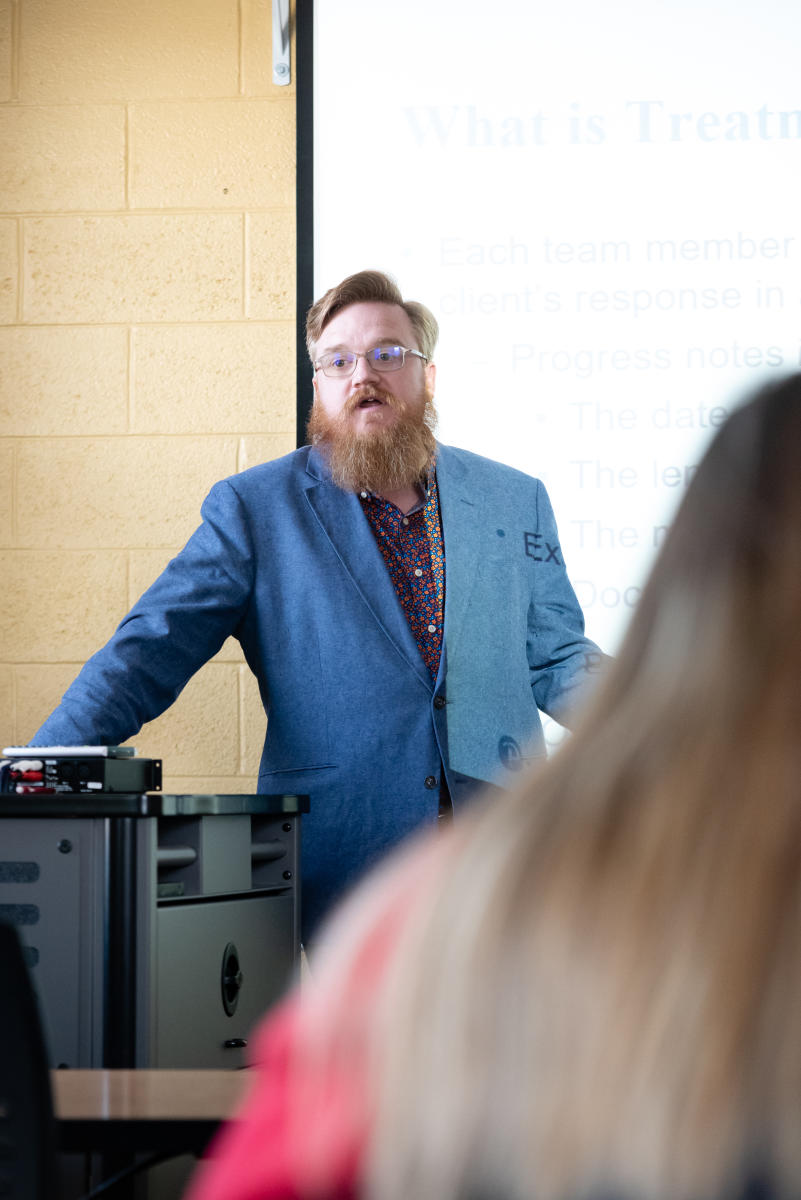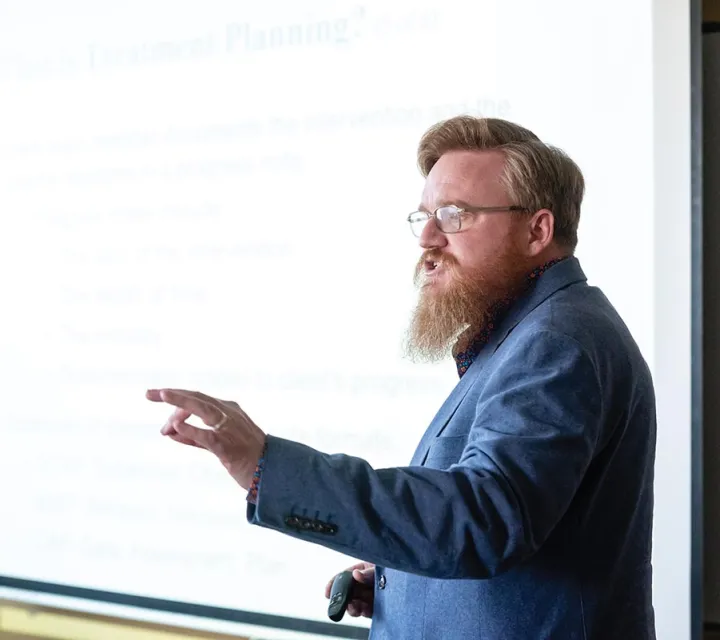A decade ago, when Dr. Michael Williams was a doctoral student at Ohio University, he and his dissertation chair began a casual discussion about Marietta College.
“We identified back then that Marietta would be a great place to start [a clinical mental health counseling program],” says Williams, who was hired last year to be the Director of Marietta’s new Clinical Mental Health Counseling graduate program, which will enroll its first cohort this fall.
Housed in the Psychology Department, the new program will grant a Master of Arts in Clinical Mental Health Counseling. The department also offers a Master of Arts in Psychology.
“Although the same kind of principles apply, we do it in a different way,” Williams says. “Whereas the psychology profession follows a medical model, which looks at deficiencies, we follow a wellness and development model, which looks at strengths-based approaches.”
Graduates can work in mental health agencies, hospitals and clinical environments, career centers, colleges and universities, and private practice—providing and coordinating counseling and psychotherapy for individuals and groups of people struggling with mental emotional disorders, substance abuse, and personal, family and social difficulties.
Williams hopes this fall’s cohort will have 12 students begin the 60-hour master’s program. The curriculum also includes 100 hours of practicum over the course of the first spring, and then 600 hours of professional internship during the second year. Students must complete 300 hours in the fall and 300 hours in the spring in order to fulfill requirements for licensure and for accrediting purposes.
The degree qualifies each graduate to seek licensure as a Licensed Professional Counselor (LPC) in and outside the state of Ohio.
“They’ll be able to qualify for licensure in all 50 states after completing our program,” Williams says. “Typically what happens is that they pass a national counseling examination [after completing the graduate program]. In Ohio, we have a two-tiered licensure program. It’s different in different states. There’s licensing examinations based off of where you go. In Ohio, there’s a second exam you would take — though its effects aren’t really
beneficial until you’ve practiced under a supervising counselor for two years.”


Marietta College can begin the process of gaining accreditation through the Counsel of Accreditation for Counseling and Related Educational Programs (CACREP) after it enrolls its first cohort.
“Accreditation is retroactive for up to 18 months, so the student who graduates while we do not have accreditation will have an accredited degree so long as we achieve accreditation within 18 months of their graduation date,” Williams says.
With the size of the current department, the new graduate program can enroll up to 24 students in its first cohort, but would have to add one faculty member to continue adding cohorts of that size in order to adhere to the accreditation requirement of having a 12:1 student-to-faculty ratio.
Dr. Alicia Doerflinger, Chair of the Psychology Department, says the new graduate program will be a good complement to the existing General Psychology Graduate Program, and will help attract undergraduates who want to continue their studies in clinical mental health counseling. She said the program will also provide much-needed mental health resources to this region.
Doerflinger says the department is excited about the growth it has experienced over the past year. “Dr. Charles Doan and Dr. Bo Winegard joined the Psychology Department as Assistant Professors in August. Dr. Doan has already developed a course that is a core course for the proposed neuroscience curriculum (Sensation and Perception), and Dr. Winegard is planning a behavioral genetics course for fall 2018 that will be an exciting elective for both the proposed Neuroscience major and the Psychology major.”
She also commended Williams for his role in developing the new graduate program.
“He has done a terrific job designing the curriculum, making key connections in the community and executing the vision that we have for this program,” Doerflinger says.
- Gi Smith
